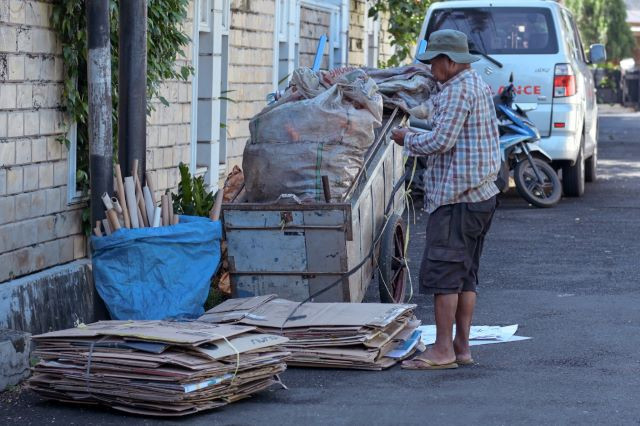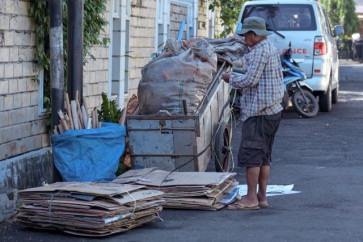Popular Reads
Top Results
Can't find what you're looking for?
View all search resultsPopular Reads
Top Results
Can't find what you're looking for?
View all search resultsEconomic growth without equity: Indonesia’s widening wealth gap
The government must prioritize policies that curb widening inequality while expanding access to prosperity across all social strata.
Change text size
Gift Premium Articles
to Anyone
I
nequality remains a marginalized issue in national development discourse. The primary focus is frequently directed toward achieving high economic growth and reducing poverty rates.
However, regardless of how high economic growth may be, if its benefits are unequally distributed and concentrated among a small elite, it poses a serious issue that can undermine the nation’s social and political foundations. The government must prioritize policies that curb widening inequality while expanding access to prosperity across all social strata.
According to the World Bank, Indonesia is currently classified as an upper-middle-income country. Data from Statistics Indonesia (BPS) indicate that in 2024, Indonesia’s economy, measured by nominal gross domestic product (GDP), reached Rp 22,139 trillion (US$$1.35 trillion), with GDP per capita standing at Rp 78.6 million.
Additionally, the national poverty rate fell to 8.57 percent as of September 2024. However, beneath these achievements, inequality has shown an upward trend. The Gini ratio increased from 0.379 in March 2024 to 0.381 in September 2024.
Furthermore, based on World Bank indicators, in September 2024, the bottom 40 percent of the population accounted for only 18.41 percent of total household expenditure, an increase of merely 0.01 percentage point compared with March 2024. Meanwhile, over the same period, the top 20 percent of earners saw their expenditure share rise by 0.33 percentage points, from 45.91 percent to 46.24 percent.
These data highlight a growing disparity between the lower- and upper-income groups, with the economy increasingly controlled by the wealthy elite. The benefits of economic growth are being disproportionately absorbed by a small group, while lower-income earners continue to struggle with financial constraints.
This phenomenon aligns with what is known as "exclusive growth", where economic expansion occurs, but its benefits are concentrated among those with access to capital, education and economic networks.



















